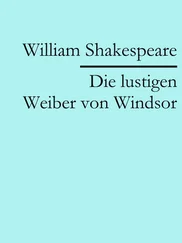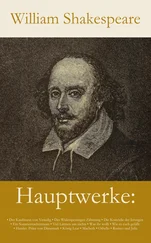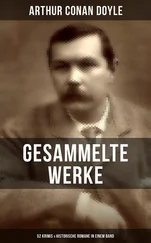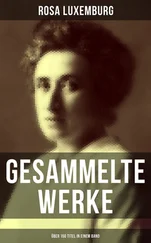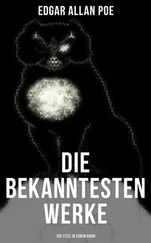CRESSIDA.
But how should this man, that makes me smile, make Hector angry?
ALEXANDER.
They say he yesterday cop’d Hector in the battle and struck him down, the disdain and shame whereof hath ever since kept Hector fasting and waking.
[Enter PANDARUS.]
CRESSIDA.
Who comes here?
ALEXANDER.
Madam, your uncle Pandarus.
CRESSIDA.
Hector’s a gallant man.
ALEXANDER.
As may be in the world, lady.
PANDARUS.
What’s that? What’s that?
CRESSIDA.
Good morrow, uncle Pandarus.
PANDARUS.
Good morrow, cousin Cressid. What do you talk of?—Good morrow, Alexander.—How do you, cousin? When were you at Ilium?
CRESSIDA.
This morning, uncle.
PANDARUS. What were you talking of when I came? Was Hector arm’d and gone ere you came to Ilium? Helen was not up, was she?
CRESSIDA.
Hector was gone; but Helen was not up.
PANDARUS.
E’en so. Hector was stirring early.
CRESSIDA.
That were we talking of, and of his anger.
PANDARUS.
Was he angry?
CRESSIDA.
So he says here.
PANDARUS.
True, he was so; I know the cause too; he’ll lay about him today, I can tell them that. And there’s Troilus will not come far behind him; let them take heed of Troilus, I can tell them that too.
CRESSIDA.
What, is he angry too?
PANDARUS.
Who, Troilus? Troilus is the better man of the two.
CRESSIDA.
O Jupiter! there’s no comparison.
PANDARUS.
What, not between Troilus and Hector? Do you know a man if you see him?
CRESSIDA.
Ay, if I ever saw him before and knew him.
PANDARUS.
Well, I say Troilus is Troilus.
CRESSIDA.
Then you say as I say, for I am sure he is not Hector.
PANDARUS.
No, nor Hector is not Troilus in some degrees.
CRESSIDA.
‘Tis just to each of them: he is himself.
PANDARUS.
Himself! Alas, poor Troilus! I would he were!
CRESSIDA.
So he is.
PANDARUS.
Condition I had gone barefoot to India.
CRESSIDA.
He is not Hector.
PANDARUS.
Himself! no, he’s not himself. Would ‘a were himself! Well, the gods are above; time must friend or end. Well, Troilus, well! I would my heart were in her body! No, Hector is not a better man than Troilus.
CRESSIDA.
Excuse me.
PANDARUS.
He is elder.
CRESSIDA.
Pardon me, pardon me.
PANDARUS.
Th’ other’s not come to’t; you shall tell me another tale when th’ other’s come to’t. Hector shall not have his wit this year.
CRESSIDA.
He shall not need it if he have his own.
ANDARUS.
Nor his qualities.
CRESSIDA.
No matter.
PANDARUS.
Nor his beauty.
CRESSIDA.
‘Twould not become him: his own’s better.
PANDARUS.
You have no judgment, niece. Helen herself swore th’ other day that Troilus, for a brown favour, for so ‘tis, I must confess—not brown neither—
CRESSIDA.
No, but brown.
PANDARUS.
Faith, to say truth, brown and not brown.
CRESSIDA.
To say the truth, true and not true.
PANDARUS.
She prais’d his complexion above Paris.
CRESSIDA.
Why, Paris hath colour enough.
PANDARUS.
So he has.
CRESSIDA.
Then Troilus should have too much. If she prais’d him above, his complexion is higher than his; he having colour enough, and the other higher, is too flaming praise for a good complexion. I had as lief Helen’s golden tongue had commended Troilus for a copper nose.
PANDARUS.
I swear to you I think Helen loves him better than Paris.
CRESSIDA.
Then she’s a merry Greek indeed.
PANDARUS.
Nay, I am sure she does. She came to him th’ other day into the compass’d window—and you know he has not past three or four hairs on his chin—
CRESSIDA.
Indeed a tapster’s arithmetic may soon bring his particulars therein to a total.
PANDARUS.
Why, he is very young, and yet will he within three pound lift as much as his brother Hector.
CRESSIDA.
Is he so young a man and so old a lifter?
PANDARUS.
But to prove to you that Helen loves him: she came and puts me her white hand to his cloven chin—
CRESSIDA.
Juno have mercy! How came it cloven?
PANDARUS.
Why, you know, ‘tis dimpled. I think his smiling becomes him better than any man in all Phrygia.
CRESSIDA.
O, he smiles valiantly!
PANDARUS.
Does he not?
CRESSIDA.
O yes, an ‘twere a cloud in autumn!
PANDARUS.
Why, go to, then! But to prove to you that Helen loves
Troilus—
CRESSIDA.
Troilus will stand to the proof, if you’ll prove it so.
PANDARUS.
Troilus! Why, he esteems her no more than I esteem an addle egg.
CRESSIDA.
If you love an addle egg as well as you love an idle head, you would eat chickens i’ th’ shell.
PANDARUS.
I cannot choose but laugh to think how she tickled his chin. Indeed, she has a marvell’s white hand, I must needs confess.
CRESSIDA.
Without the rack.
PANDARUS.
And she takes upon her to spy a white hair on his chin.
CRESSIDA.
Alas, poor chin! Many a wart is richer.
PANDARUS.
But there was such laughing! Queen Hecuba laugh’d that her eyes ran o’er.
CRESSIDA.
With millstones.
PANDARUS.
And Cassandra laugh’d.
CRESSIDA.
But there was a more temperate fire under the pot of her eyes. Did her eyes run o’er too?
PANDARUS.
And Hector laugh’d.
CRESSIDA.
At what was all this laughing?
PANDARUS.
Marry, at the white hair that Helen spied on Troilus’ chin.
CRESSIDA.
An’t had been a green hair I should have laugh’d too.
PANDARUS.
They laugh’d not so much at the hair as at his pretty answer.
CRESSIDA.
What was his answer?
PANDARUS.
Quoth she ‘Here’s but two and fifty hairs on your chin, and one of them is white.’
CRESSIDA.
This is her question.
PANDARUS.
That’s true; make no question of that. ‘Two and fifty hairs,’ quoth he ‘and one white. That white hair is my father, and all the rest are his sons.’ ‘Jupiter!’ quoth she ‘which of these hairs is Paris my husband?’ ‘The forked one,’ quoth he, ‘pluck’t out and give it him.’ But there was such laughing! and Helen so blush’d, and Paris so chaf’d; and all the rest so laugh’d that it pass’d.
CRESSIDA.
So let it now; for it has been a great while going by.
PANDARUS.
Well, cousin, I told you a thing yesterday; think on’t.
CRESSIDA.
So I do.
PANDARUS.
I’ll be sworn ‘tis true; he will weep you, and ‘twere a man born in April.
CRESSIDA.
And I’ll spring up in his tears, an ‘twere a nettle against May.
[Sound a retreat.]
PANDARUS.
Hark! they are coming from the field. Shall we stand up here and see them as they pass toward Ilium? Good niece, do, sweet niece Cressida.
CRESSIDA.
At your pleasure.
PANDARUS.
Here, here, here’s an excellent place; here we may see most bravely. I’ll tell you them all by their names as they pass by; but mark Troilus above the rest.
[AENEAS passes.]
CRESSIDA.
Speak not so loud.
PANDARUS.
That’s Aeneas. Is not that a brave man? He’s one of the flowers of Troy, I can tell you. But mark Troilus; you shall see anon.
[ANTENOR passes.]
CRESSIDA.
Who’s that?
PANDARUS.
That’s Antenor. He has a shrewd wit, I can tell you; and he’s a man good enough; he’s one o’ th’ soundest judgments in Troy, whosoever, and a proper man of person. When comes Troilus? I’ll show you Troilus anon. If he see me, you shall see him nod at me.
Читать дальше

